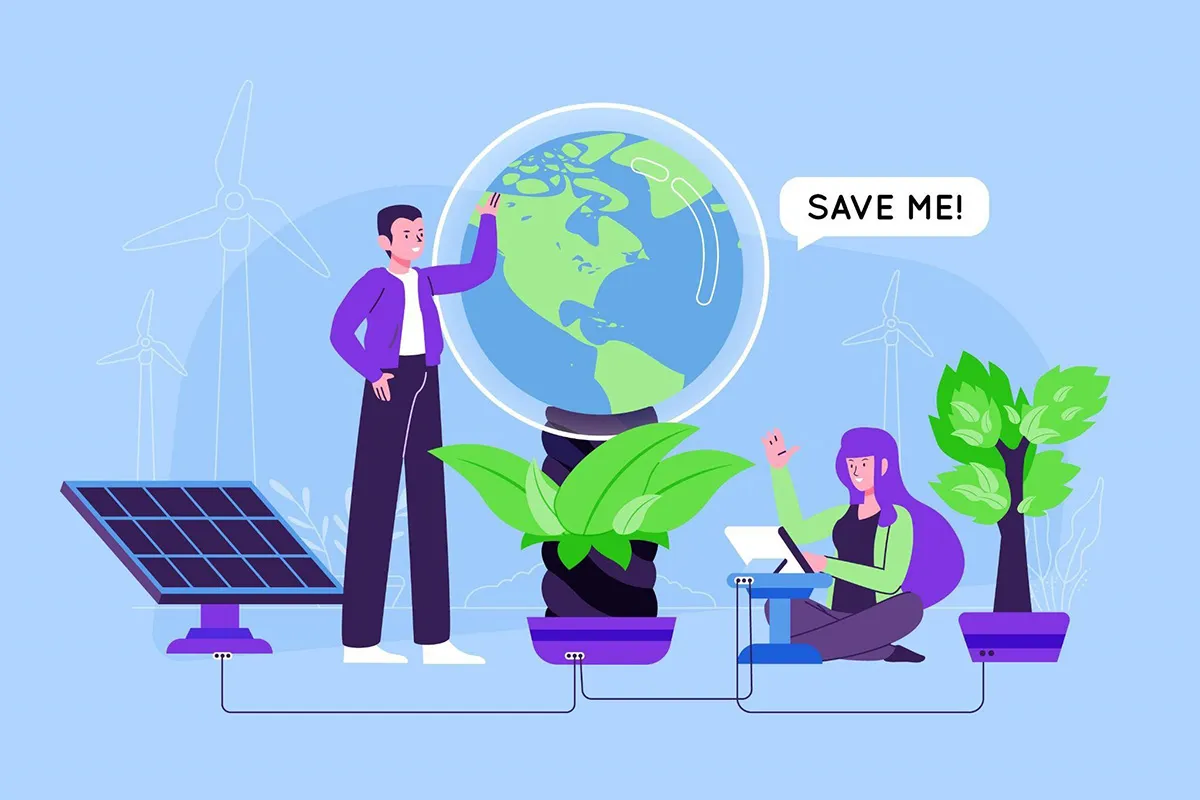Introduction
As the world faces escalating environmental challenges, the shift toward sustainable energy practices has become imperative. These practices not only address the immediate concerns of climate change but also ensure a healthier, more equitable future for generations to come. This article explores ten compelling reasons why adopting sustainable energy practices is crucial for the well-being of future generations.
1. Mitigating Climate Change
Transitioning to sustainable energy sources such as solar, wind, and hydroelectric power significantly reduces greenhouse gas emissions. This shift is vital in combating global warming and mitigating the adverse effects of climate change, including extreme weather events and rising sea levels.
2. Ensuring Energy Security

Sustainable energy practices promote energy independence by utilizing locally available resources. This reduces reliance on imported fossil fuels, enhancing national security and ensuring a stable energy supply, even during geopolitical tensions or global supply disruptions.
3. Promoting Economic Growth
Investing in renewable energy technologies stimulates economic growth by creating jobs in manufacturing, installation, and maintenance sectors. The renewable energy industry has become a significant source of employment, contributing to economic development and reducing unemployment rates.
4. Reducing Air Pollution
Traditional energy production methods, particularly coal and natural gas, emit pollutants harmful to human health. Sustainable energy sources produce little to no air pollution, leading to improved public health outcomes and reduced healthcare costs associated with respiratory and cardiovascular diseases.
5. Preserving Natural Resources
Fossil fuels are finite resources that, when depleted, cannot be replenished. Sustainable energy sources are renewable and abundant, ensuring a continuous supply of energy without depleting natural resources, thus preserving them for future generations.
6. Enhancing Technological Innovation
The transition to sustainable energy fosters innovation in technology and infrastructure. Advancements in energy storage, smart grids, and energy-efficient appliances drive technological progress, leading to more efficient and sustainable living solutions.
7. Supporting Rural Development

Renewable energy projects, such as wind farms and solar installations, are often located in rural areas, providing economic opportunities and infrastructure development. These projects can revitalize rural communities by creating jobs and improving local economies.
8. Promoting Social Equity
Access to clean and affordable energy is fundamental to social equity. Sustainable energy practices ensure that all communities, including underserved and remote areas, have access to reliable energy sources, improving quality of life and reducing disparities.
9. Enhancing Biodiversity Conservation
Renewable energy projects have a lower environmental impact compared to traditional energy methods. They help preserve natural habitats and biodiversity by reducing land degradation and pollution, contributing to the conservation of ecosystems and wildlife.
10. Building Resilience to Climate Impacts
Sustainable energy systems are more resilient to climate-related disruptions. Distributed energy sources, such as rooftop solar panels, provide localized power generation, reducing vulnerability to grid failures caused by extreme weather events.
Conclusion
Adopting sustainable energy practices is not merely an environmental necessity but a comprehensive strategy for ensuring a prosperous, healthy, and equitable future. By mitigating climate change, promoting economic growth, and preserving natural resources, sustainable energy practices lay the foundation for a resilient and thriving society. The choices we make today regarding energy consumption will profoundly impact the quality of life for future generations. Embracing sustainable energy is not just an option; it is an obligation to our planet and its inhabitants.
Adopting sustainable energy practices is more than a technological shift—it’s a moral imperative. Every watt of clean energy we produce, every policy we enact, and every habit we change is a message to future generations that we care. That we listened. That we acted in time.
Today’s decisions will shape the air they breathe, the climate they live in, and the opportunities they inherit. Our children and grandchildren shouldn’t have to pay the price for our inaction. They deserve thriving ecosystems, stable economies, and healthy communities—and sustainable energy is at the heart of that promise.
What’s encouraging is that the tools are already in our hands. From rooftop solar panels to electric buses to smart energy grids, the future isn’t waiting—it’s unfolding around us. The challenge lies not in the availability of solutions but in the collective will to implement them.
If we act boldly and wisely today, we won’t just reduce emissions or conserve resources—we’ll leave behind a legacy of hope, responsibility, and progress. Because powering the future sustainably is more than a policy goal. It’s a commitment to life, to each other, and to the generations who will one day look back at this moment as the turning point. Let’s make sure it’s one they’ll be proud of.
Saudi Arabia and Muslim Nations Welcome Ramadan 2025 Amidst Diverse Circumstances



